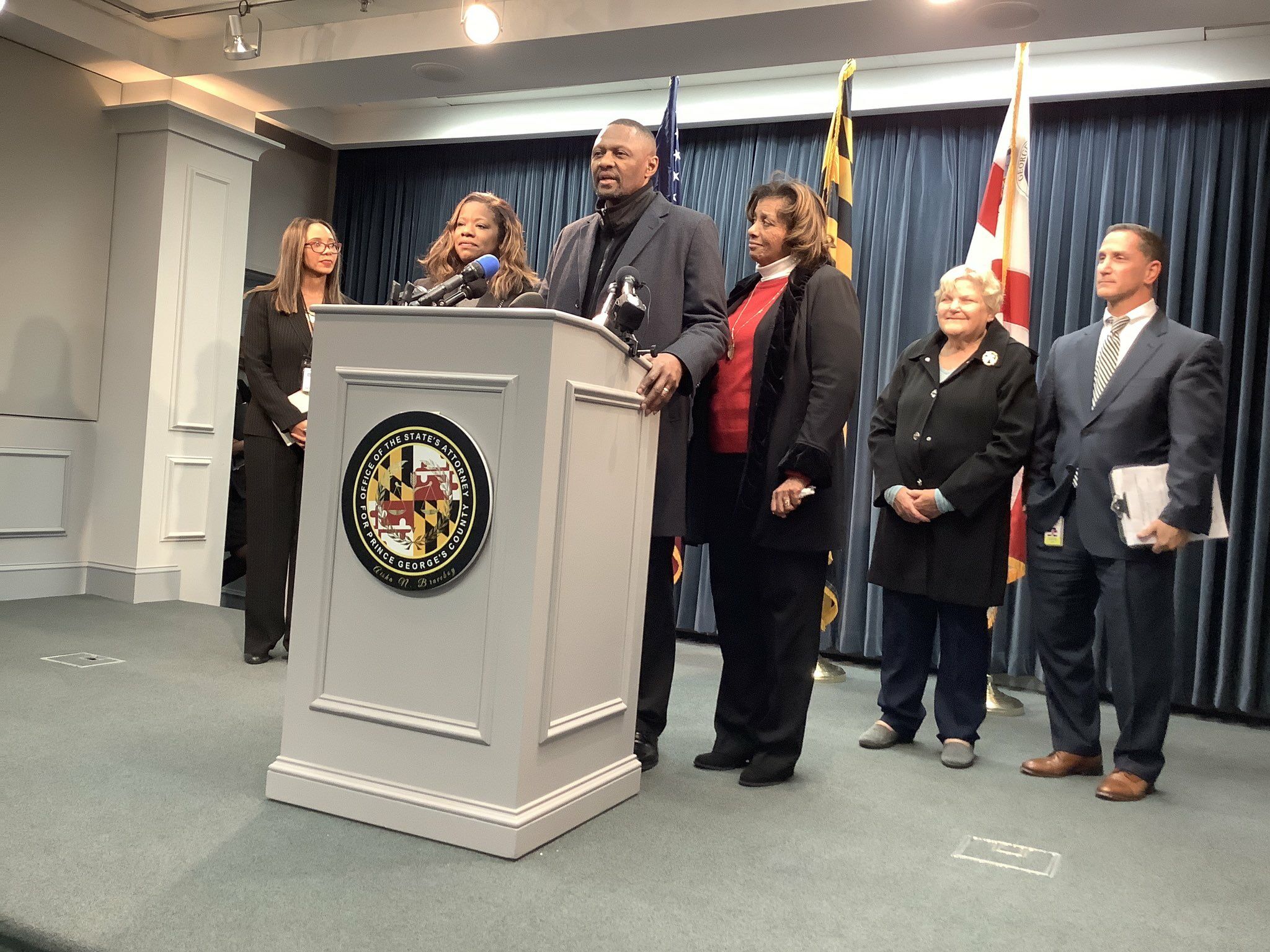
Lawyers for Sean Urbanski had no comment as they left the courtroom, after it took a Prince George’s County jury only two hours to convict their client of first-degree murder in the death of Richard Collins III.
Urbanski, 24, will face up to life in prison with no chance of parole when he’s sentenced on April 16, 2020, by Prince George’s County Circuit Court Judge Lawrence Hill, who presided over the jury trial.
In the hallway after the jury announced its verdict Wednesday afternoon, defense attorneys William Brennan and John McKenna declined to characterize Urbanski’s reaction to the verdict or their own.
However, based on the judge’s rulings before and during trial, it’s likely Urbanski’s lawyers will file an appeal after the sentencing.
In the months before trial, Hill declined a defense request to have the state murder count tried separately from the state charge of hate crime resulting in death.
The Maryland hate count, which carries a maximum sentence of 20 years, can only be considered by the jury after convicting a defendant of murder or manslaughter.
On Tuesday, after prosecutors and the defense rested their case, Hill threw out the hate-crime charge, saying prosecutors had failed to show Urbanski, who is white, stabbed Collins specifically because Collins was black.
Even though the judge dismissed the hate count, in an appeal the defense could argue jurors hearing prosecutors talking about “the poison” of hate and racism may have caused jurors to focus on motive instead of the intent required for a first-degree murder conviction.
According to the Maryland criminal code, first-degree murder is “a deliberate, premeditated and willful killing.”
While jurors are allowed to consider possible motives in their deliberations, prosecutors don’t need to prove why a murder was committed.
Brennan and McKenna could argue if the murder case had been prosecuted separately, their argument that Urbanski was so drunk he was unable to form the intent needed for first-degree murder would not have been influenced by testimony and a prosecution narrative about hate and racism.
Prince George’s County prosecutors Jonathon Church and Jason Abbott had showed jurors 12 racist memes recovered from Urbanski’s phone.
However, since jurors have not been questioned about how they reached their decision, it’s unclear whether racism played a role in their deliberations. Church and Abbott told jurors that Urbanski walking toward Collins with an already-unfolded knife proved premeditation.
Appearing with Collins’ parents, Richard and Dawn, in a post-verdict news conference, county state’s attorney Aisha Braveboy maintained Urbanski’s motivation was hate and intolerance: “We understand, and we know that Lt. Collins was targeted because he was black.”
Braveboy said prosecutors would seek a sentence of life in prison with no chance of parole.
Braveboy and Collins’ parents said they would work in Annapolis to change the state’s current hate crime law: “To make it clear that anyone committing an offense, whether it’s the only reason, or one of many reasons that someone commits a crime against another.”
Richard Collins Jr. said his family was “very pleased with the results,” and will be actively involved in trying to tweak the law.
“We are looking forward to the journey ahead, because this is only the beginning,” Richard Collins Jr. said.








